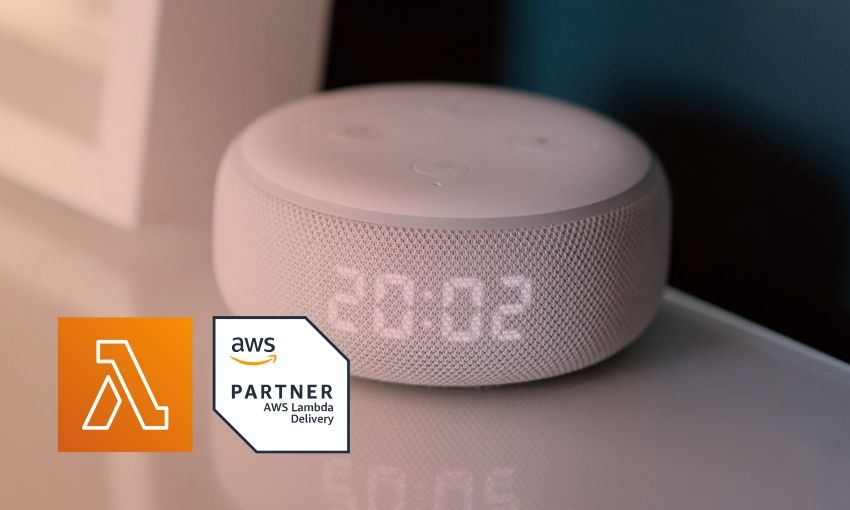
AWS Lambda Specialization
AWS Lambda is a serverless computing service provided by Amazon Web Services (AWS) that allows you to run code without worrying about underlying compute infrastructure. With AWS Lambda, you can create applications and services that process data, generate events, and handle HTTP requests without managing servers.

AWS Lambda allows you to run code in a scalable and cost-effective manner, as it charges only for runtime and memory usage. You can use AWS Lambda to execute backend applications, integrate with other AWS services, process real-time events, and more. AWS Lambda supports multiple programming languages, including Python, Node.js, Java, C#, and Go.
To use AWS Lambda, you write a function code and upload it to the service. When that function is invoked, AWS Lambda automatically allocates the necessary resources to execute it and manages code execution. You can invoke an AWS Lambda function in various ways, such as through an HTTP request, an event generated by another AWS service, or a scheduled trigger.
Expertise in AWS Lambda
CloudDog is an Amazon Web Services (AWS) Service Delivery Partner (SDP) that provides implementation, consulting, and support services for AWS products and services. SDPs specialize in different areas and can help companies make the most of AWS products and services, including AWS Lambda.
In January 2022, we obtained the AWS Service Delivery Partner Designation for AWS Lambda due to our history of excellence in developed solutions.
With this achievement, CloudDog became a part of an exclusive group of partners specialized in delivering AWS Lambda-related services worldwide.
AWS Lambda Use Cases
AWS Lambda can be used in a wide range of use cases, including:
Backend Applications
AWS Lambda can be used to run backend code for web and mobile applications. For example, you can use AWS Lambda to process HTTP requests, integrate with databases and other AWS services, and perform other backend tasks.
Real-Time Event Processing
AWS Lambda can be used to process real-time events, such as messages published to an Amazon SNS topic or files uploaded to Amazon S3. This allows you to create real-time event processing solutions without worrying about underlying compute infrastructure.
Integration with Other Services
AWS Lambda can be used to integrate different AWS services and create integrated solutions. For example, you can use AWS Lambda to synchronize data between Amazon DynamoDB and Amazon Elasticsearch or to send email notifications when a file is uploaded to Amazon S3.
Scheduled Tasks
AWS Lambda can be used to easily and reliably schedule tasks. For example, you can use AWS Lambda to perform a nightly backup task or to periodically process data.
High-Performance Computing
AWS Lambda can be used to execute code that requires high processing capacity, such as scientific simulations or large-scale image processing. AWS Lambda automatically allocates processing resources based on demand, allowing you to obtain results quickly without worrying about underlying compute infrastructure.
Microservices
AWS Lambda can be used to create independent and scalable microservices. This enables you to break down your application into smaller and more components.
Serverless Data Pipelines
AWS Lambda can be used to create serverless data pipelines, allowing you to process large amounts of data quickly and scalably.
Internet of Things (IoT) Applications
AWS Lambda can be used to process data from IoT devices in real-time. For example, you can use AWS Lambda to process data from temperature sensors and send notifications when readings are outside the normal range.
Voice Applications
AWS Lambda can be used to process voice requests and provide responses through voice applications like Amazon Alexa.
Data Analysis
AWS Lambda can be used to process large amounts of data and generate real-time reports or data visualizations. This can be useful for large-scale data analysis or providing real-time insights for decision-making.
Benefits of AWS Lambda
AWS Lambda offers several benefits, including:
- Serverless: You don't need to worry about server setup, deployment, or management. AWS Lambda handles all of that automatically.
- Cost-Effective: AWS Lambda charges only for runtime and memory usage, which can result in cost savings compared to running code on a dedicated server.
- Automatic Scaling: AWS Lambda automatically adjusts processing capacity based on demand, eliminating the need to worry about scalability.
- Integration with Other Services: AWS Lambda can easily integrate with other AWS services such as Amazon S3, Amazon DynamoDB, and Amazon SNS. This allows you to build robust and integrated solutions without managing underlying infrastructure.
- Support for Multiple Programming Languages: AWS Lambda supports multiple programming languages, including Python, Node.js, Java, C#, and Go. This means you can choose the language that best suits your needs.
Frequently Asked Questions
What are the costs of AWS Lambda?
AWS Lambda charges for runtime and memory usage. The price varies based on the region and the type of compute instance you choose. Additionally, AWS Lambda offers a free tier of 400,000 GB-seconds of runtime and 400,000 GB-seconds of invocation time per month.
How long can I run an AWS Lambda function?
The maximum execution time for an AWS Lambda function is 15 minutes. However, most Lambda functions run in seconds or minutes.
Can I run AWS Lambda functions in multiple deployment locations?
Yes, AWS Lambda offers multiple deployment locations, including the United States, Europe, Japan, the Asia Pacific, and South America. You can choose the deployment location that best suits your latency and availability needs.
What is the size limit for an AWS Lambda function?
The maximum size for an AWS Lambda function is 50 MB for packaged functions or 250 MB for container-packaged functions. Additionally, the maximum size for a container-packaged function is 10 GB, but this option is currently available only in some deployment locations.
Can I use AWS Lambda with other AWS services?
Yes, AWS Lambda can be easily integrated with other AWS services such as Amazon S3, Amazon DynamoDB, Amazon SNS, and many others. This allows you to create integrated solutions without having to manage the underlying computing infrastructure.
What is the AWS Lambda function invocation limit per second?
The AWS Lambda function invocation limit per second is 1,000 invocations per function and region. However, this limit can be increased upon request.
Can I use AWS Lambda with front-end applications?
Yes, AWS Lambda can be used to create front-end applications. For example, you can use AWS Lambda to process API requests and return data to the frontend application. Additionally, AWS Lambda can be used to perform backend tasks such as user authentication and data processing for frontend applications.
Can I run AWS Lambda functions in containers?
Yes, AWS Lambda supports containers, allowing you to run your functions in a container environment. This can be useful if you want to use specific libraries or tools that are not available in the AWS Lambda platform.
Talk to Our
Experts in AWS Cloud
If you're interested in getting help with implementing AWS Lambda in your company or project, we offer specialized consulting to help you make the most of this service.
Our consultants have experience in implementing AWS Lambda-based solutions for a wide variety of use cases, including backend applications, real-time event processing, integration with other AWS services, and more.
We'd be happy to assist you in getting the most out of AWS Lambda and increasing the efficiency and scalability of your solutions.
Other Specializations

AWS Control Tower
Contact us for more information about how we can help you implement AWS Control Tower for security and compliance.

AWS Config
AWS Config is a service that manages the configuration of all the resources you have in AWS. AWS Config allows you to audit and assess resources.
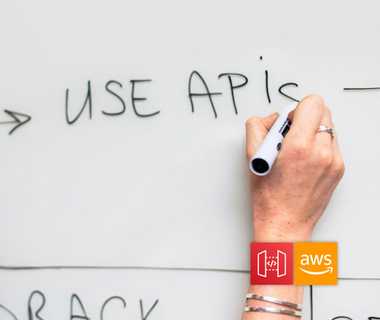
Amazon API Gateway
With the AWS API Gateway, any developer accessing the Amazon console can publish, upload, monitor and guarantee the security of the API.

AWS Cloud Operations
CloudOps encompasses a wide range of essential tasks to ensure the secure, efficient, and effective operation of infrastructure in the AWS cloud.
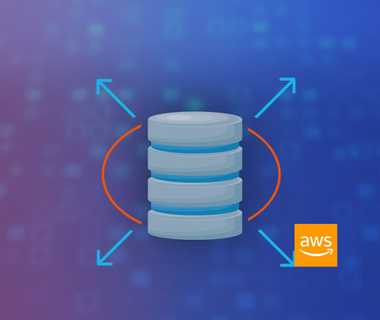
Amazon RDS
Amazon RDS is a managed relational database with various automations that offer peace of mind in your day-to-day operations. See the advantages.
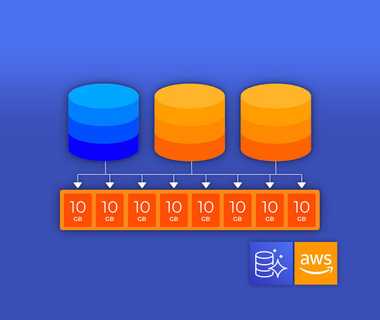
Amazon Aurora
Increases the performance of MySQL databases by up to 5x and the performance of PostgreSQL databases by up to 3x.
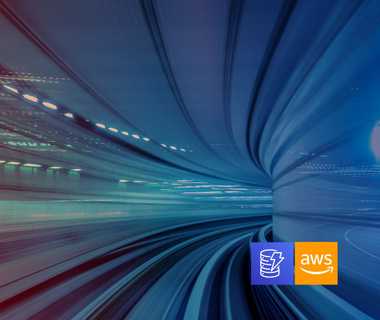
Amazon DynamoDB
Dynamo db delivers performance even at scale, with it you can throw data and get that data quickly.

Amazon EKS
Simplified configuration and management of Kubernetes clusters, with high availability, security and support.

Amazon EC2
Amazon Elastic Compute Cloud (Amazon EC2) offers scalable cloud capacity on the AWS platform, eliminating the need to invest in hardware.

Amazon Rekognition
CloudDog specializes in Amazon Rekognition, a cloud service that provides an image management solution, including uploads, storage

Amazon CloudFront
Reduce your site's load time by speeding up content delivery, e-commerce optimization, institutional site or blog. Talk to our architects!
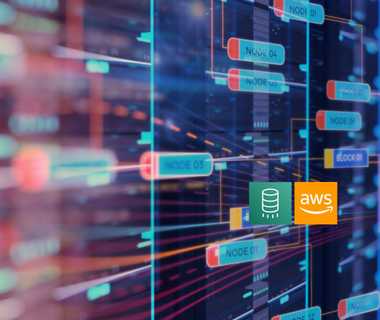
AWS Database Migration Service
Migrate your on-premises databases with minimal downtime using AWS Database Migration Service. Contact us !
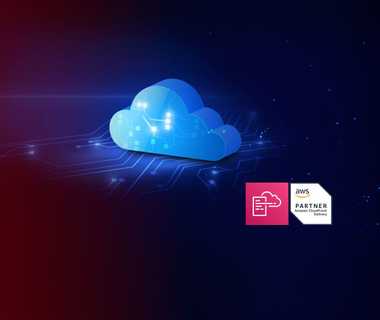
AWS CloudFormation
CloudDog offers AWS CloudFormation services that allow you to manage your cloud infrastructure and deploy it quickly.
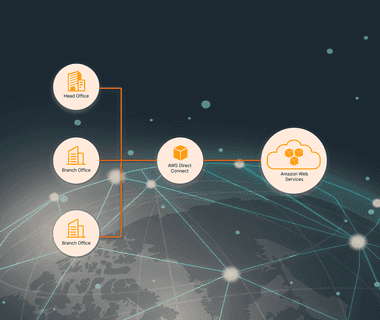
AWS Direct Connect
AWS Direct Connect allows you to establish a dedicated network connection between your on-premises environment and AWS infrastructure.

AWS Systems Manager
AWS Systems Manager is an AWS managed service that provides a unified platform for viewing and controlling your AWS infrastructure.

AWS Service Catalog
AWS Service Catalog is a tool that allows you to create and manage a catalog of cloud products for use by your company's users.

AWS Server Migration Service
Migrate your on-premises or virtualized servers with minimal downtime with AWS Server Migration Service. Contact us !

AWS WAF
Are your company's applications prepared against cyber attacks? Lately, these attacks are increasingly increasing.

AWS Well-Architected Framework
CloudDog has a working methodology to guarantee customers an efficient architecture in the cloud with the 6 pillars of the Well Architected Framework.

Network Services
CloudDog works to manage its network structure in the cloud with Amazon Web Services, which provides tools and resources

Computing Services
CloudDog has expertise in managing the most diverse cloud computing services such as: Elastic Beanstalk, EC2, ECS, Fargate, EMR, among others.

AWS Cloud Security
CloudDog is a company specializing in cloud services from Amazon Web Services (AWS). Offering its customers the highest level of solutions

Storage Services
We manage Storage Services for your company to store any amount of data in the AWS Cloud, in a secure and scalable way. Contact us!